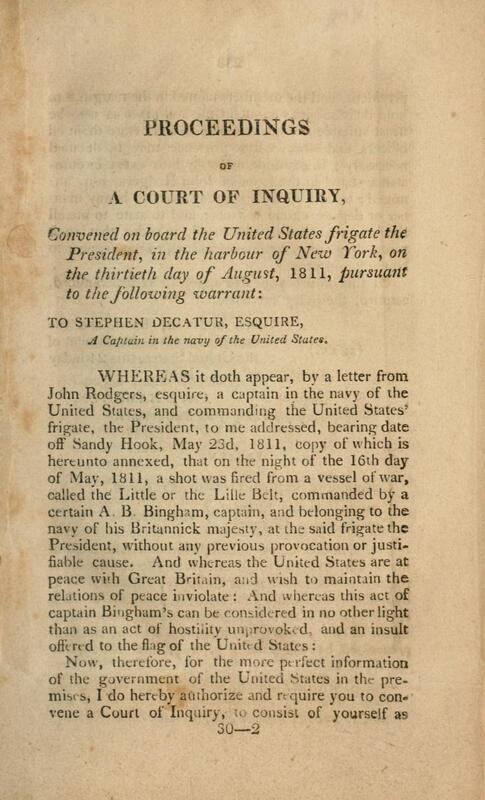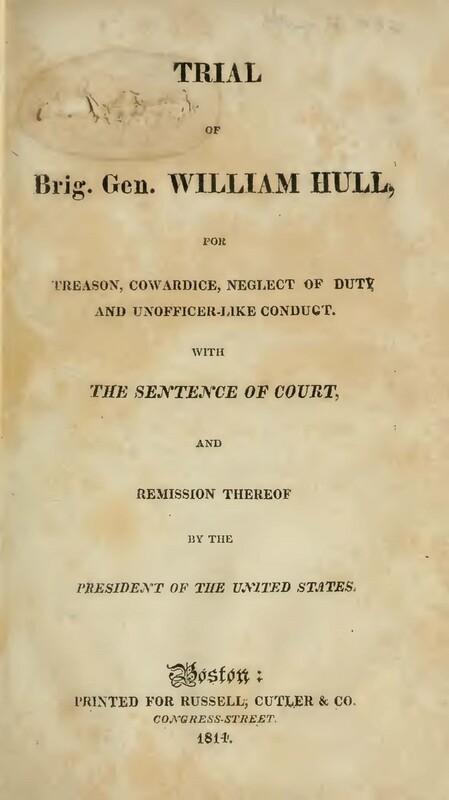Court Proceedings
The Little Belt Affair
The Little Belt affair was a naval conflict between the HMS Little Belt and the USS President on May 16, 1811. It was one of many incidents that led to the outbreak of war between the United States and Great Britain in 1812.
Commodore John Rodgers commanded the President and while sailing off the coast towards New York, mistook the Little Belt for the HMS Guerriere. The Guerriere had recently been involved in an altercation with the Americans. Rodgers decided to pursue the ship. The British and American accounts of the battle that followed differ considerably. The Captain of the Little Belt, Arthur Bingham, demanded the American ship identify itself once within hailing range. Rodgers claimed he did as well, and both men claimed they were the first to ask. Neither captain replied to the inquiry. A shot was fired shortly afterwards, but which side fired that first shot was disputed. After a brief altercation, the much smaller Little Belt had few guns remaining in action, and a cease fire was called.
An American account of the event can be found below.
Proceedings of a court of inquiry, convened on board the United States frigate the President, in the harbour of New York, on the thirteenth day of August, 1811, pursuant to the following warrant: To Stephen Decatur, esquire, a captain in the Navy of the United States. E 335 P74 1811
Trial of William Hull
After General William Hull's surrender of Detroit to Isaac Brock and his Native American allies in August 1812, Hull faced much scrutiny and criticism for his actions. Brock had succeeded in intimidating Hull into surrendering without a battle when in fact the American troops outnumbered the British and their allies. A court martial followed where Hull was required to account for his actions at Detroit. The court was not convinced that Hull's actions were warranted and he was sentenced to death. President Madison later commuted his sentence to dismissal from the army because of his honourable service during the American Revolution. More information on this can be found in the following book.
HMS Java
The HMS Java was a Royal Navy frigate that engaged with the USS Constitution on December 29, 1812. The Java was captured by the Americans, who had a more experienced crew. The ship was not worth taking as a prize, so it was set on fire and subsequently exploded. The surviving officers and men of the Java faced a court martial for the incident on board the HMS Gladiator. They were honourably acquitted.
Proceedings of the Court Martial, held on the Officers and Crew of His Majesty's late Ship the Java E 360 J4 1813

